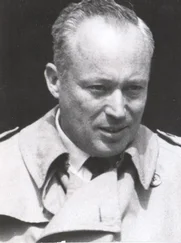Armageddon - Leon Uris
Здесь есть возможность читать онлайн «Armageddon - Leon Uris» весь текст электронной книги совершенно бесплатно (целиком полную версию без сокращений). В некоторых случаях можно слушать аудио, скачать через торрент в формате fb2 и присутствует краткое содержание. Жанр: Старинная литература, на английском языке. Описание произведения, (предисловие) а так же отзывы посетителей доступны на портале библиотеки ЛибКат.
- Название:Leon Uris
- Автор:
- Жанр:
- Год:неизвестен
- ISBN:нет данных
- Рейтинг книги:4 / 5. Голосов: 1
-
Избранное:Добавить в избранное
- Отзывы:
-
Ваша оценка:
- 80
- 1
- 2
- 3
- 4
- 5
Leon Uris: краткое содержание, описание и аннотация
Предлагаем к чтению аннотацию, описание, краткое содержание или предисловие (зависит от того, что написал сам автор книги «Leon Uris»). Если вы не нашли необходимую информацию о книге — напишите в комментариях, мы постараемся отыскать её.
Leon Uris — читать онлайн бесплатно полную книгу (весь текст) целиком
Ниже представлен текст книги, разбитый по страницам. Система сохранения места последней прочитанной страницы, позволяет с удобством читать онлайн бесплатно книгу «Leon Uris», без необходимости каждый раз заново искать на чём Вы остановились. Поставьте закладку, и сможете в любой момент перейти на страницу, на которой закончили чтение.
Интервал:
Закладка:
Two currencies wage a battle for recognition confounding every rule of economics. This fight for the money is a good measuring stick of the way the people think, for despite its impossible physical position the Western B marks continue to thrash the “wallpaper marks” of the Russians.
In this, strangest of all sieges, the West continues to hang on by the skin of its teeth while in Karlshorst and Potsdam Trojan horses are being built for the Berliners, and in Moscow, Trojan horses are being built for the West.
Sean handed the column back to Nellie. “Like you said, nothing short of brilliant.”
“Sean,” Big Nellie said abruptly, “you’re wearing your heart on your sleeve. Tell me to mind my own business.”
“Things used to be clear to me.”
“None of us like to see our magnificent points of view moderated by shades of gray. It’s like admitting defeat. You were once a mean, exacting, German-hating son of a bitch.”
“Only a Russian clings to something as absolute truth ... until the commissars replace it with another absolute truth.”
“Don’t play verbal gymnastics with me, Sean.”
“Am I chasing windmills? Do I see changes in these people because I want to, or are they really happening?”
Big Nellie grunted. It was still that girl, and Sean was seeking justifications. “Talk to most of our people in Germany and they’ll tell you what a sweet, kindly, sentimental folk the Germans are. They may have been slightly misled by Hitler, but we apologize for them. Most Americans in Germany will tell you that most Germans didn’t know what the Nazis were doing.” Sean grunted.
Bradbury shook his mop of hair. “My distinguished colleagues are quick to sing odes to the noble Berliner. The Germans haven’t changed, Sean, they’ve just shifted a little with the prevailing winds. Wait till this blockade goes into a sixth month and all those unity rallies around Germany will vanish in smoke. Wait until a Berlin tax takes a liverwurst sandwich out of their lunch buckets and you’ll see how fast they get tired of Berlin. I’ve already heard it ... Berlin was really never our capital ... Berlin is a problem of the Americans.”
As Big Nellie attacked the wall of justification he was building Sean wondered how far he had committed himself to making peace with the Germans in order to have Ernestine. Was he groping for signs that did not exist?
“The German people,” Big Nellie said, “are not going to make a democratic state out of the Western Zones because they long for democracy. They’ll do it because we order them to do it. Their political convictions and their love of freedom begins and ends with a full lunch bucket. They do not possess the inner convictions to survive an assault on a democracy. They’re out to make the best deal they can to save their asses and they’ll turn to the first strong man again who keeps their lunch buckets full. Heard enough?”
“You might as well finish.”
“No one was more shocked than the Russians when they learned how easy it was to control Germans. We say, make a democracy. On the other side of the gate they say, make a police state. Think they’ll rebel? Hell no, they’d have to tramp on somebody’s lawn to do that. Three years after Hitler and they’re marching over there with torches and banners. Three years and they’ve got block wardens and kangaroo courts again. Neighbor rats on neighbor in the grand old German tradition. You use informers. You know it’s no sin to them to spill their guts to save their necks.”
Big Nellie heaved a deep sigh, touched Sean’s hand. “I get a little wound up in this, but somehow I can’t get used to my new peace-loving democratic German ally.”
“I had it coming,” Sean said.
“You’re my pal, Sean. The things you feel are deep and intense. If you try to cover them, they’ll come back and haunt you.”
Chapter Fifteen
“BEAVER! GET YOUR ASS IN here! ”
“Sorry, sir, he’s at the Press Club with the daily handouts.”
“I want him in here the minute he gets back.”
“Yes, sir.”
Hiram Stonebraker held before him a copy of the Task Force Times, a one-page daily paper edited by Woody Beaver with a headline reading: Sidney Hops Into Hamburg.
It appeared that Woody Beaver had got hold of a kangaroo and was having the animal escorted around Germany appealing to Germans to fill its pouch with presents for West Berlin and particularly toys for the children. Sidney was collecting more tons than the Airlift was flying and getting more space in the Task Force Times than the C-54’s.
Woody Beaver had learned his job, all right. Too damned well, Stonebraker thought. The Press Club was a converted mansion once belonging to a cement king and sat in West Biebrich on the Rhine. Beaver wheeled and dealed, planting Stonebraker’s views, and when they differed with Buff Morgan’s resorted to devious methods.
In public he rarely left the general’s side, and was quick to tap his shoulder when he felt the general was about to make a salty utterance, particularly about the occupation country club.
Beaver started the Task Force Times on twenty-four hours’ notice because Stonebraker thought it would be a good separate entity and said, “The Stars and Stripes is good for morale. At first Buff Morgan did not take kindly to a enough for the rest of us peasants.”
When he finally did authorize it, he conveniently forgot to allot paper, but Beaver proved equal to the task by foraging and scrounging so that the first issues came out in a variety of shapes and colors.
One of Beaver’s brain storms was to hold a contest to give the Airlift an even more romantic name. “Operation Vittles” won the day and was good for copy in the world press. The contest winner, by coincidence, was a WAF working in Headquarters whom Beaver just so happened to be dating at the time.
Stonebraker decided to humble his rambunctious press officer by pouring on flight duty. On his third flight to Berlin, Beaver happened to pick up a passenger, a fraulein working at the mobile field canteen at Tempelhof. Their return flight somehow went wrong and they ended up in Marseilles.
The girl stuck to her story that she stowed away, and Beaver insisted that his instruments got fouled up by a strange magnetic phenomenon. Stonebraker told him to concentrate on his public-information efforts.
“Beaver has just entered the building, sir.”
Stonebraker emitted a low, ominous gurgle like a stewing volcano.
“Beaver! Where did you get this goddamned animal.”
“You mean Sidney, sir? Well, I was up at Fühlsbuttel covering the arrival of the first Australian crews and this kangaroo was their mascot and ... anyhow... I thought ...”
“Beaver, I’m not running a zoo.”
“Sir, yesterday we got a ton of toys in Lübeck and we’ve got a pledge of a ton of sausage from Bremen. Now you know these Germans have never been hot for each other. This is a very good sign.”
“What the hell are you, a political philosopher? How the hell we going to get this junk to Berlin?”
“By the end of the year we might be able to spare a few planeloads for an Operation Santa Claus.”
“Santa Claus!”
“Just look at all these things we’ve collected.”
Stonebraker realized it was a great public relations idea and backed off ever so slowly.
“After all,” Beaver said, “you commanded me to use my initiative and make advance planning.”
“Well ...”
“Sidney’s brothers, Humphrey and Octavius, have just arrived. We can cover all three Zones if the General will just sign this authorization for some extra trucks.”
Stonebraker scratched his name on the requisition, then proceeded to chew Beaver’s tail out for a cartoon in the Task Force Times making jest of what the Airlift referred to as “temporary duty.”
Читать дальшеИнтервал:
Закладка:
Похожие книги на «Leon Uris»
Представляем Вашему вниманию похожие книги на «Leon Uris» списком для выбора. Мы отобрали схожую по названию и смыслу литературу в надежде предоставить читателям больше вариантов отыскать новые, интересные, ещё непрочитанные произведения.
Обсуждение, отзывы о книге «Leon Uris» и просто собственные мнения читателей. Оставьте ваши комментарии, напишите, что Вы думаете о произведении, его смысле или главных героях. Укажите что конкретно понравилось, а что нет, и почему Вы так считаете.











